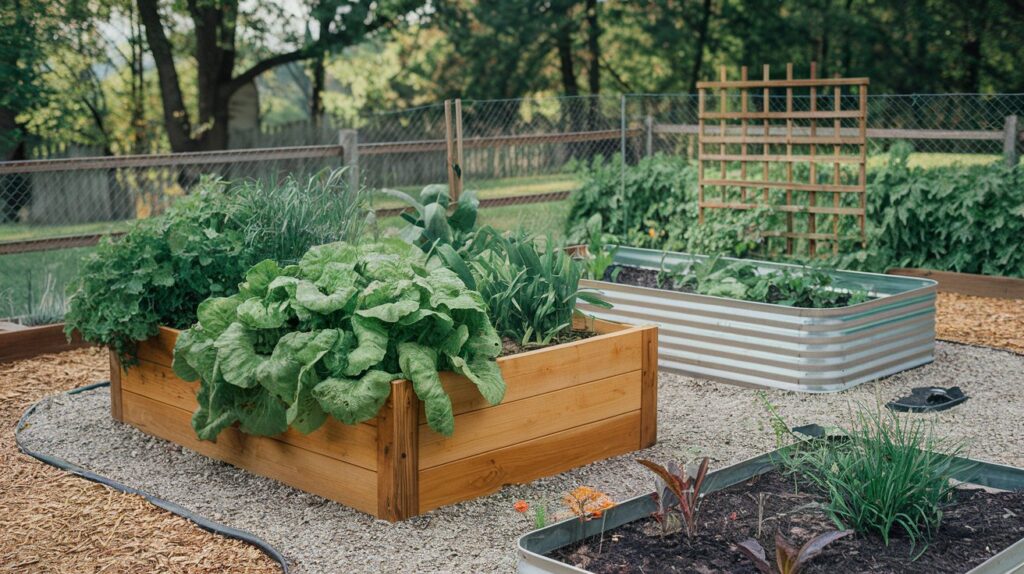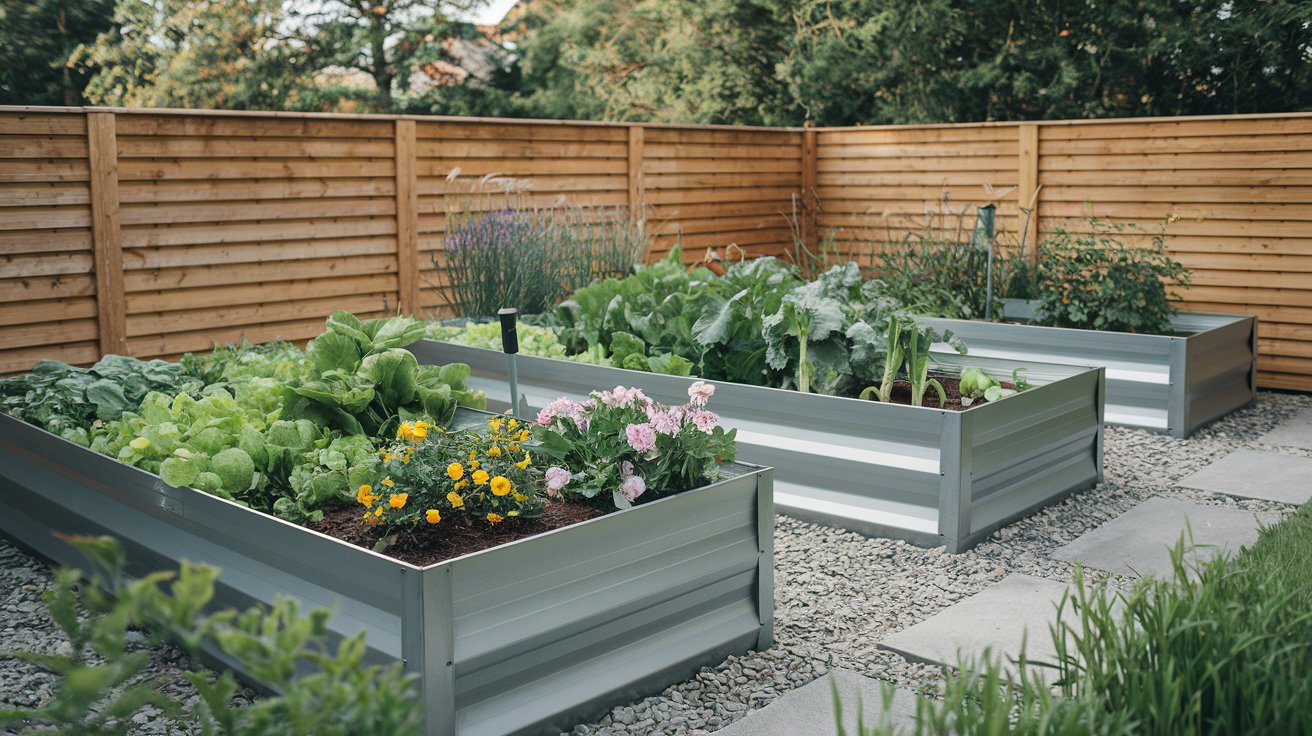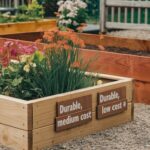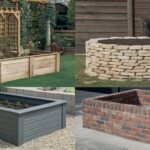Steel raised beds have become increasingly popular in recent years due to their sleek appearance, durability, and easy maintenance. However, many gardeners wonder whether it’s safe to grow plants, especially vegetables, in these beds. This article will explore the safety of using steel raised beds, their pros and cons, and some tips on how to get the most out of your metal garden bed setup.
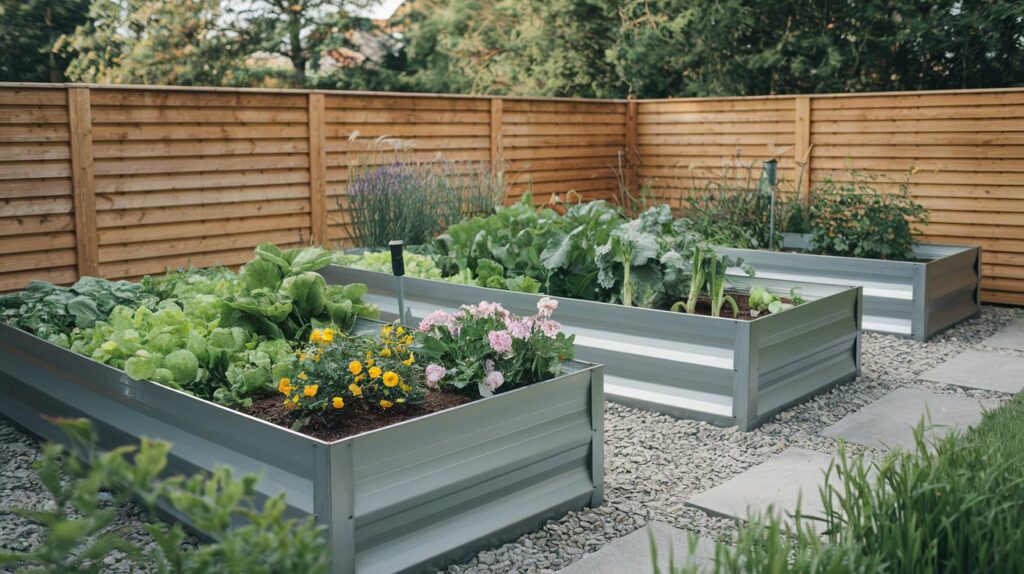
Table of Contents
1. Are Steel Raised Beds Safe for Growing Vegetables?
The short answer is yes, steel raised beds are safe for gardening, including growing vegetables. Modern steel beds are typically made from galvanized steel, which has a protective zinc coating to prevent rust. The zinc used in the galvanization process is generally considered safe and non-toxic, as long as the steel remains intact.
Galvanized steel has been used for many years in various applications, including roofing, water pipes, and other infrastructure materials. The small amount of zinc that might leach from the steel into the soil is minimal and usually not enough to affect the safety of your crops. Many studies have shown that plants grown in galvanized steel beds do not accumulate harmful levels of zinc.
Concerns About Leaching:
- Zinc Leaching: Zinc is a naturally occurring element in soil, and small amounts of zinc can leach into the soil from galvanized steel. However, zinc is also an essential nutrient for plants, and the trace amounts leached are usually not harmful. In fact, zinc deficiency is more common than zinc toxicity in most soils.
- Rust: Over time, especially in regions with heavy rainfall or high humidity, the protective zinc coating may begin to wear down, leading to rust. While rust itself is not harmful to plants, it can weaken the bed structure. Proper maintenance can help prevent rust and extend the life of your steel raised beds.
2. The Pros of Steel Raised Garden Beds
Steel raised beds come with several advantages that make them an attractive option for modern gardeners. Let’s take a closer look at the benefits:
Durability:
- Long Lifespan: Unlike wood, which can rot over time when exposed to soil and moisture, steel beds can last decades with proper care. Galvanized steel is resistant to rust, pests, and extreme weather conditions, making it a long-lasting solution for raised beds.
- Minimal Maintenance: Steel raised beds require little to no maintenance compared to wooden beds. There’s no need for sealing, staining, or treating the material to keep it in good condition.
Aesthetic Appeal:
- Modern and Sleek Design: Steel raised beds offer a clean, modern look that can complement contemporary garden designs. Their sleek appearance can add a stylish edge to your outdoor space, making them a focal point in your garden.
- Customizable Shapes: Steel beds are often available in different shapes and sizes, allowing for flexibility in garden design. Whether you’re creating a traditional rectangular bed or experimenting with curved or tiered designs, steel can easily be adapted to fit your garden layout.
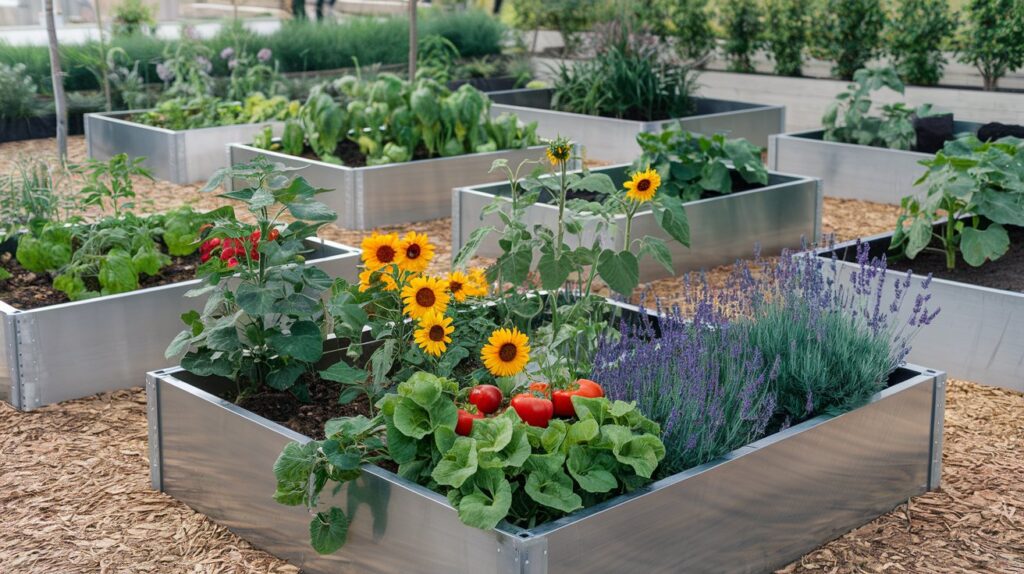
Ease of Assembly:
- Quick DIY Installation: Many steel raised garden beds come in easy-to-assemble kits. All you need are a few tools and some basic DIY skills, and you can have a garden bed ready to plant in just a few hours.
- Lightweight but Sturdy: Steel beds are relatively lightweight compared to other materials like concrete or stone, making them easier to move and install. Despite being lightweight, they are sturdy and can hold their shape under the pressure of soil and water.
3. The Cons of Steel Raised Garden Beds
While steel raised beds offer many advantages, there are a few potential downsides to consider before making the switch:
Temperature Concerns:
- Heat Retention: Steel can heat up quickly in the sun, which can raise the temperature of the soil. In hot climates, this could potentially stress plants, especially those that prefer cooler soil temperatures, such as lettuce and spinach. To mitigate this, consider insulating the inside of the bed with a layer of cardboard or mulch, or plant heat-loving crops like tomatoes and peppers in these beds.
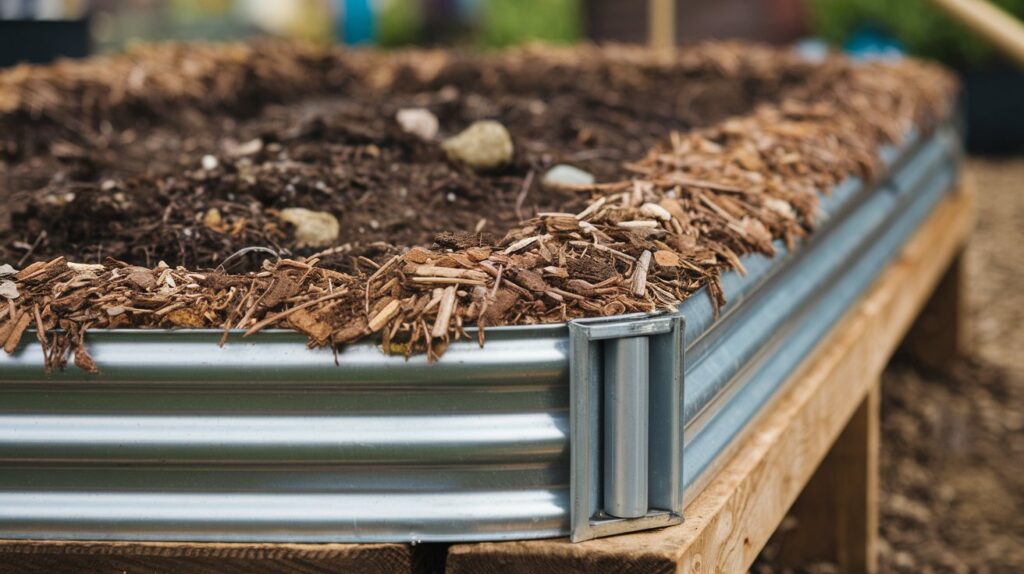
Cost:
- Higher Initial Investment: Steel raised beds are typically more expensive than wooden beds. However, their long lifespan often offsets the initial cost over time. If you’re planning a large garden, the cost of multiple steel beds could add up quickly, so it’s worth considering your budget before committing to this option.
4. How to Care for Steel Raised Beds
To extend the life of your steel raised beds and ensure the safety of your plants, a little maintenance goes a long way. Here are some tips:
1. Monitor for Rust:
- Over time, small scratches or dings in the galvanized coating can expose the steel to moisture, leading to rust. To prevent this, inspect your beds regularly and touch up any damaged areas with a zinc-rich paint or coating.
2. Prevent Soil Erosion:
- Steel raised beds, like all raised beds, need good drainage. Without proper drainage, soil erosion can occur, especially in areas with heavy rainfall. Line the bottom of your bed with coarse materials like gravel or rocks to encourage water to flow out of the bed.
3. Insulate in Hot Climates:
- As mentioned earlier, steel beds can heat up quickly in full sun. To protect your plants, line the interior sides of the bed with insulating materials like burlap, cardboard, or fabric. Mulching the surface of the soil can also help regulate temperature and retain moisture.
5. How Long Do Steel Raised Beds Last?
When properly cared for, steel raised beds can last 20 years or more. This longevity makes them a fantastic option for gardeners looking for a long-term investment. Unlike wood, which may need to be replaced after 5-10 years, galvanized steel beds resist rot, pests, and the wear-and-tear of outdoor elements.
6. Should You Line a Steel Raised Garden Bed?
Many gardeners opt to line the inside of their steel raised beds with a protective material like landscape fabric, cardboard, or plastic. While lining the bed is not strictly necessary, it can help prevent contact between the soil and the steel, potentially extending the life of the bed.
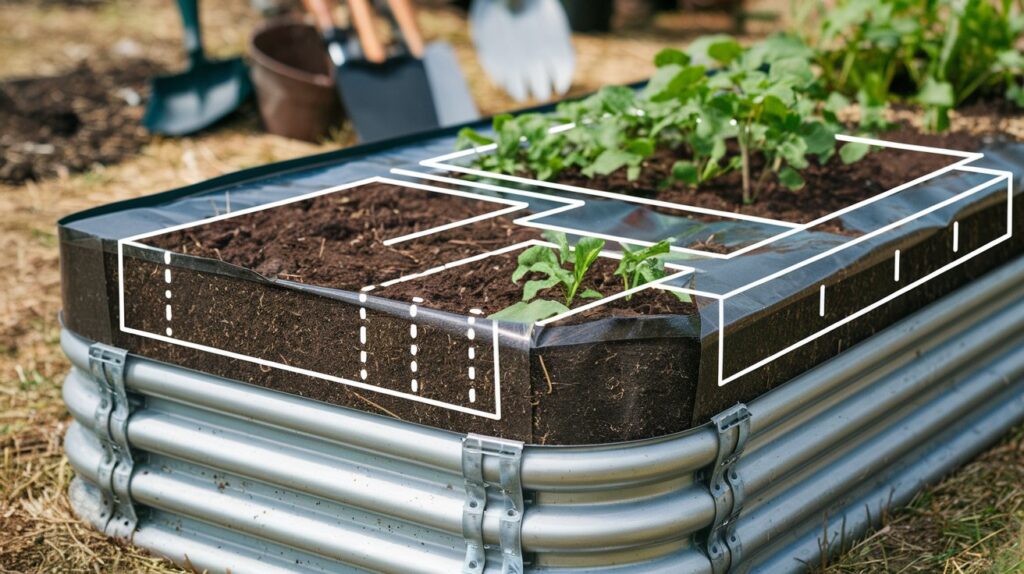
Benefits of Lining:
- Extend the Lifespan of the Bed: A liner can help reduce the risk of rusting from the inside, especially in climates with heavy rainfall or moisture.
- Prevent Soil Contamination: If you’re concerned about any potential leaching from the steel, a liner provides an added layer of protection.
7. Conclusion: Is It Safe to Garden in Steel Raised Beds?
In summary, yes, steel raised beds are safe for gardening, including growing vegetables. The small amount of zinc that might leach from the galvanized steel is generally not harmful to plants or people. Steel raised beds offer a durable, stylish, and low-maintenance option for both experienced and beginner gardeners.
While they do come with a higher initial cost and the potential for heat retention in hot climates, the benefits—such as longevity, pest resistance, and aesthetic appeal—often outweigh the downsides. With proper care and maintenance, your steel raised bed can last for decades, providing a sturdy foundation for countless growing seasons.
